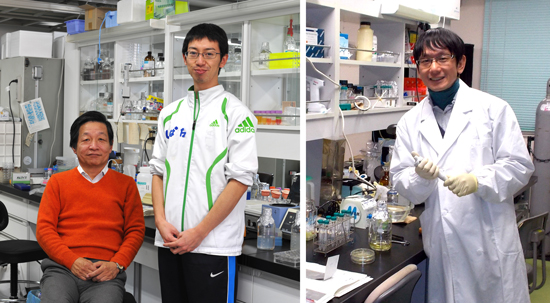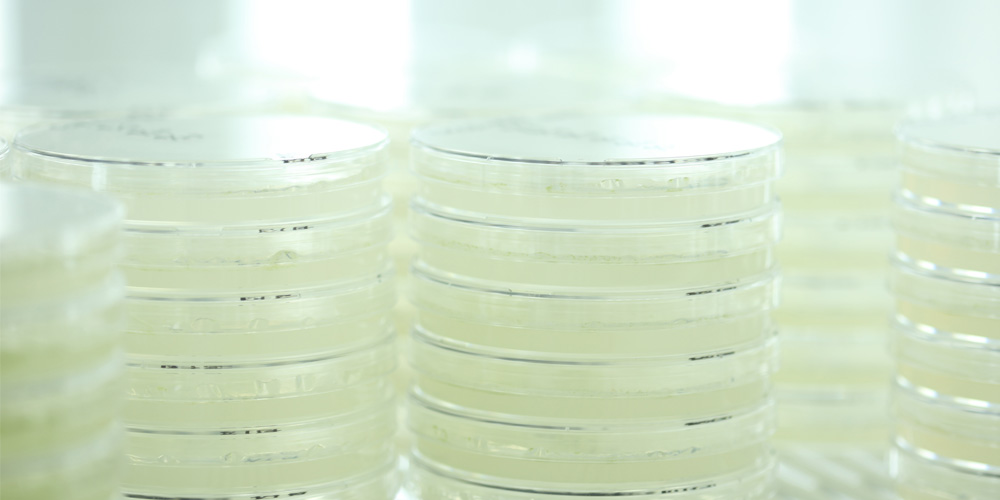Peroxisomes are important organelles that are involved in the performance of metabolic functions important to plant growth such as degradation of fatty acids, photorespiration, and phytohormone synthesis. The metabolism carried out in peroxisomes is characterized by the production of hydrogen peroxide; the peroxisome itself is also damaged by this gradual oxidation.
The research group of NIBB’s Division of Cell Mechanisms’ graduate student Michitaro Shibata, researcher Kazusato Oikawa (currently at the Niigata University Faculty of Agriculture) and Prof. Mikio Nishimura, has now shown that the damaged peroxisomes are selectively degraded by autophagy, and it has become clear that autophagy functions as a quality control mechanism of peroxisomes in Arabidopsis thaliana.
These results was published in the Plant Cell on December 24th 2013. In addition, it will be featured as a target paper in the 'In Brief' section of the magazine.

Prof. Mikio Nishimura, graduate student Michitaro Shibata and Dr. Kazusato Oikawa





